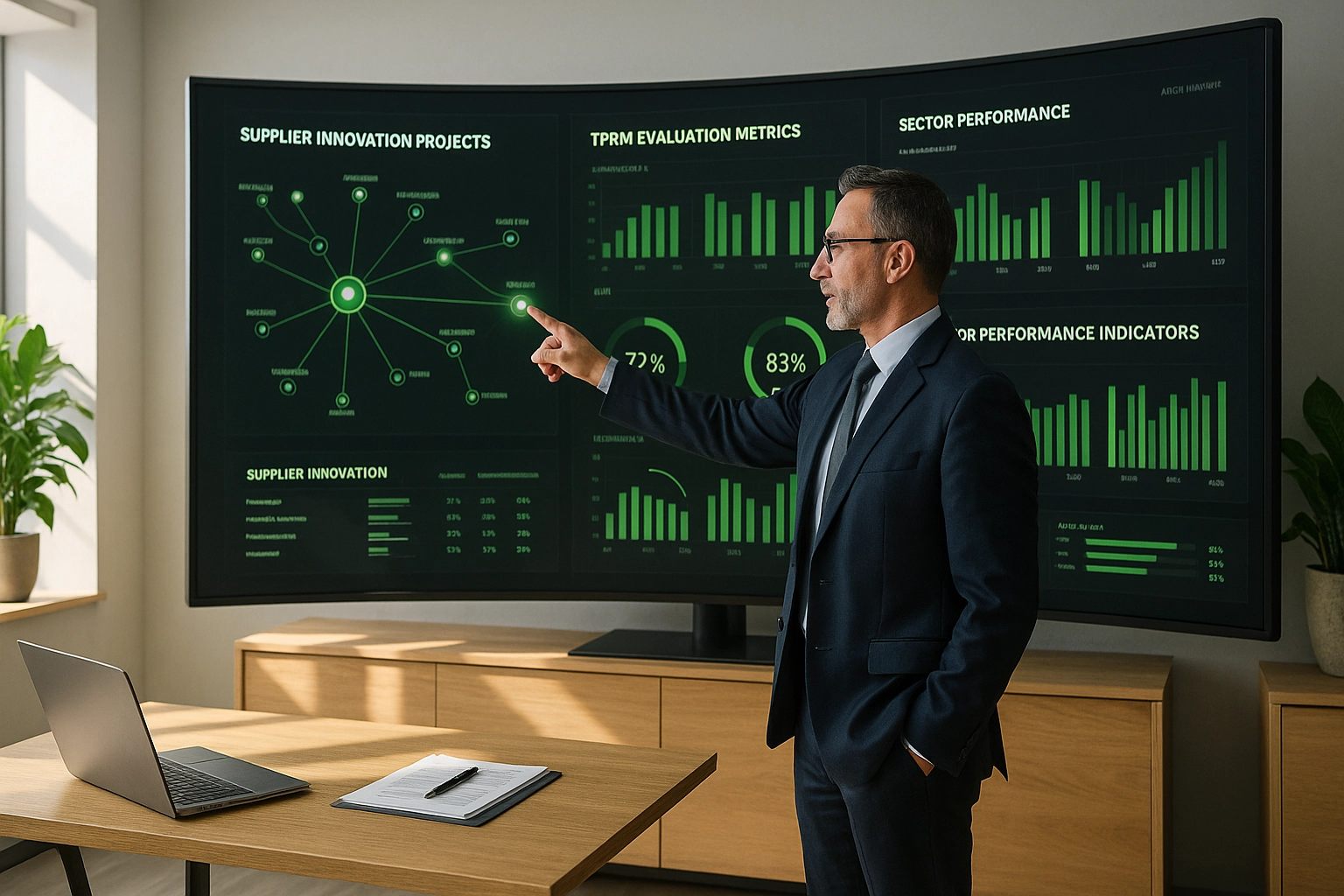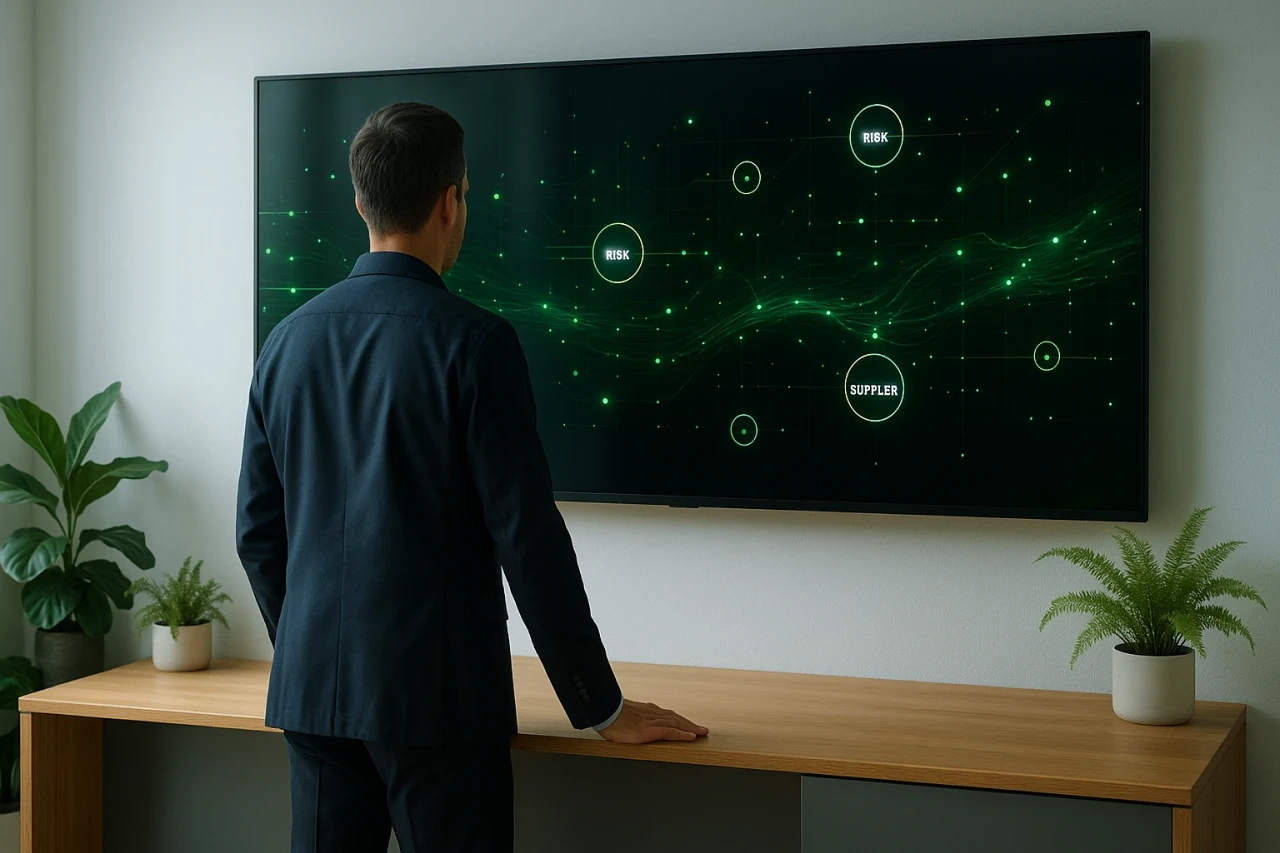Automating CSRD Reporting: A Guide to Streamlined Compliance

The implementation of the EU CSRD directive is revolutionizing how companies approach sustainability reporting. This regulatory shift requires organizations to rigorously assess and document the ESG practices of their external partners, presenting new challenges in data collection and regulatory compliance.
How CSRD Is Transforming Third-Party Evaluation
The European CSRD directive establishes a stringent regulatory framework that significantly expands ESG disclosure obligations. Unlike previous approaches, it requires companies to incorporate the evaluation of their third-party partners into their overall sustainability strategy.
This directive affects more than 71,000 European companies and mandates detailed disclosures on environmental, social, and governance performance based on ESRS standards. Organizations must now demonstrate how their relationships with third parties contribute to or hinder their sustainability goals, as explained in our complete guide on CSRD challenges for businesses.
In the public sector, this transformation is particularly evident in social housing contract management. HLM organizations must now systematically evaluate the CSR commitment of their maintenance and energy renovation providers and integrate this data into their CSRD reporting to demonstrate contributions to decarbonizing France’s social housing stock.
Automating CSRD Reporting: Securing Collaborative Third-Party Evaluation
Automating CSRD reporting has become essential in response to the growing complexity of third-party evaluation. Technological solutions enable ESG data management to become a reliable, collaborative process, significantly reducing the risk of human error. According to PwC Luxembourg, 55% of companies subject to CSRD face challenges in ensuring data quality and consistency.
This collaborative approach addresses a key issue: reducing “supplier fatigue.” By enabling the secure pooling of evaluation data among clients, third parties are no longer required to respond multiple times to the same regulatory demands.
Artificial intelligence now enables predictive ESG risk analysis and the automatic detection of anomalies in compliance assessments. These advanced technologies help proactively identify risks and generate contextual alerts to optimize partner sustainability. Our expertise in the Scope 3 data collection methodology shows how automation is reshaping third-party governance.
Boost your CSRD third-party evaluation efficiency
Discover how Aprovall360 automates CSRD assessment across your 450,000 evaluated third parties with our document-based AI and proven industry expertise.
CSRD Technology Solutions: Automating Third-Party Assessment
Modern technologies are radically transforming the automation of CSRD reporting by placing collaborative third-party evaluation at the heart of compliance strategies. This transformation allows companies to structure external relationships with measurable ESG criteria.
A Semarchy study found that 83% of companies don’t believe their ESG data is ready to meet CSRD audit requirements.
In the construction sector, this technological shift allows general contractors to automatically evaluate the environmental compliance of multi-tier subcontractors. Advanced tech platforms facilitate the proactive identification of anomalies and contextual alerts to strengthen partner sustainability, as outlined in our guide on decarbonization in construction.
CSRD Reporting Tools: Securing Third-Party Data Collection
Automated platforms integrate advanced collaborative processing features: real-time synchronization of third-party data, cross-validation from multiple sources, and generation of reports aligned with regulatory standards. This technology-driven approach helps businesses maintain continuous oversight of their partner ecosystems while meeting audit requirements.
Modern reporting tools also include advanced analytics that reveal key trends and simplify reporting through pre-built templates and automatic XBRL tagging.
Aprovall’s collaborative approach addresses a major challenge: reducing “supplier fatigue.” By enabling the secure pooling of evaluation data among clients, third-party partners no longer need to respond repeatedly to the same requirements.
Simplify your CSRD compliance—without wasting hours
Discover how Aprovall360 streamlines your CSRD compliance through smart automation and the expertise of 450,000 evaluated third parties.
CSRD Regulatory Compliance: Automating Collaborative Evaluation
Automating CSRD reporting is fundamentally reshaping the approach to regulatory compliance by placing collaborative third-party evaluation at its core. Advanced technological solutions enable continuous monitoring of partner ecosystems while meeting external audit requirements.
Artificial intelligence is revolutionizing compliance by automating the integration of multi-source data and detecting anomalies in real time. This ensures each stage of the reporting cycle—from data extraction to final documentation—is verified and validated electronically.
In the industrial sector, this allows buyers to automatically verify ICPE compliance of critical subcontractors. Automated platforms integrate environmental certifications and ESG performance data to build a third-party governance ecosystem that significantly reduces regulatory non-compliance risks.
Securing Third-Party Data: Reducing Non-Compliance Risk
Data integrity becomes crucial under the CSRD’s external audit requirement. Automation minimizes input errors through accuracy and consistency across large volumes of third-party data.
Modern reporting tools offer advanced validation capabilities to detect and automatically correct errors, duplicates, and irregularities. This real-time validation enables proactive identification of potential anomalies and ensures traceability for audits.
Drive your CSRD compliance collaboratively
Optimize your CSRD compliance through the collaborative assessment of your 450,000 evaluated third parties with Aprovall360.
Sustainability and Third-Party Governance: Turning Evaluation into Strategic Value
Automating CSRD reporting is fundamentally transforming strategic decision-making by putting third-party evaluation at the center of corporate sustainability strategies. Enhanced quality and availability of ESG collaboration data empower leaders to make informed, data-driven decisions.
Fully integrating ESG criteria into business strategy enables leaders to better understand opportunities and risks related to sustainability. This alignment encourages companies to evolve their business models while pursuing ambitious sustainability goals.
In retail, this transformation enables brands to automatically assess the CSR engagement of their marketplace vendors and global logistics providers. Automated reporting tools help spot trends and adjust sourcing policies accordingly, enhancing third-party governance.
Operational Resilience: Building a Sustainable Third-Party Ecosystem
With growing awareness of environmental and societal issues, automating CSRD reporting has become essential for any organization aiming to build a resilient third-party ecosystem. This collaborative approach creates a virtuous cycle of trust and long-term partnership.
The AMF emphasizes that the CSRD extends the responsibilities of governing bodies, which must collectively ensure the compliance of sustainability reporting. This strengthened operational resilience improves both strategic and operational performance while demonstrating a sincere commitment to a sustainable future.
Strengthen your ecosystem’s resilience in the face of CSRD
Optimize your third-party ecosystem with Aprovall360’s collaborative assessment and enhance your operational resilience to meet CSRD challenges.
These articles might interest you
-
 02 May 2025Third-Party Cybersecurity Assessment: NIS 2 and DORA ComplianceSecteurEuropean companies are facing a major regulatory challenge with the simultaneous implementation of NIS 2 and DORA. These two regulations are radically transforming approaches to cybersecurity and operational resilience, particularly in critical and financial sectors. This convergence requires in-depth multi-regulatory expertise to navigate between specific sectoral obligations and operational synergies. Understanding NIS 2 and DORA […]
02 May 2025Third-Party Cybersecurity Assessment: NIS 2 and DORA ComplianceSecteurEuropean companies are facing a major regulatory challenge with the simultaneous implementation of NIS 2 and DORA. These two regulations are radically transforming approaches to cybersecurity and operational resilience, particularly in critical and financial sectors. This convergence requires in-depth multi-regulatory expertise to navigate between specific sectoral obligations and operational synergies. Understanding NIS 2 and DORA […]Read more
-
 14 June 2025Supplier Evaluation Journey: Optimizing Multi-Regulatory Data CollectionSecteurThe complexity of third-party evaluation is intensifying as regulatory requirements multiply. This reality calls for a reform of internal processes and the adoption of collaborative workflows that are essential to ensure compliance while strengthening operational resilience. Optimizing the evaluation journey involves a structured methodology that streamlines document collection, improves supplier quality, and significantly reduces “supplier fatigue.” This context calls for a […]
14 June 2025Supplier Evaluation Journey: Optimizing Multi-Regulatory Data CollectionSecteurThe complexity of third-party evaluation is intensifying as regulatory requirements multiply. This reality calls for a reform of internal processes and the adoption of collaborative workflows that are essential to ensure compliance while strengthening operational resilience. Optimizing the evaluation journey involves a structured methodology that streamlines document collection, improves supplier quality, and significantly reduces “supplier fatigue.” This context calls for a […]Read more
-
 17 June 2025Real-Time Monitoring: How to Revolutionize Third-Party Governance?SecteurMaintaining reliable application performance and monitoring the supplier ecosystem are now core organizational priorities. CIOs and CFOs increasingly scrutinize the ROI of continuous monitoring, especially when outages can cost hundreds of thousands of euros within hours. With regulatory changes like DORA, NIS 2, and CSRD, a proactive approach rooted in real-time tracking is no longer optional—it’s redefining traditional […]
17 June 2025Real-Time Monitoring: How to Revolutionize Third-Party Governance?SecteurMaintaining reliable application performance and monitoring the supplier ecosystem are now core organizational priorities. CIOs and CFOs increasingly scrutinize the ROI of continuous monitoring, especially when outages can cost hundreds of thousands of euros within hours. With regulatory changes like DORA, NIS 2, and CSRD, a proactive approach rooted in real-time tracking is no longer optional—it’s redefining traditional […]Read more
-
 28 January 2025Third-Party Cybersecurity Benchmark: Assessing and Securing Your Supply Chain in 2025SecteurThird-party cybersecurity has become a major strategic concern for organizations in 2025. According to AgileBuyer, 65% of procurement departments consider supplier failures a critical risk, while 42% list cyberattacks as their second most pressing concern. This challenge is especially acute in certain sectors: 88% of heavy industries anticipate major supplier-related risks, and 68% of IT/Telecom companies […]
28 January 2025Third-Party Cybersecurity Benchmark: Assessing and Securing Your Supply Chain in 2025SecteurThird-party cybersecurity has become a major strategic concern for organizations in 2025. According to AgileBuyer, 65% of procurement departments consider supplier failures a critical risk, while 42% list cyberattacks as their second most pressing concern. This challenge is especially acute in certain sectors: 88% of heavy industries anticipate major supplier-related risks, and 68% of IT/Telecom companies […]Read more
